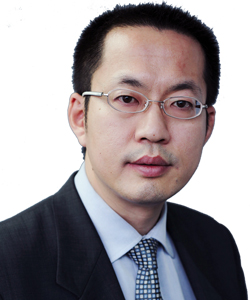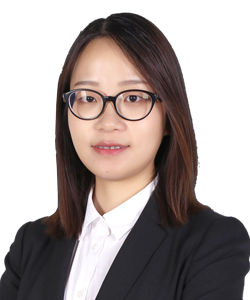The Supreme People’s Court (SPC), on 14 November 2019, issued the Minutes of the National Working Conference on the Trial of Civil and Commercial Cases by Courts. As they aim to provide solutions to some problems arising during the trial practice and serve as the reference for application of laws, the minutes are of great guiding significance for judicial practice.
As China’s market economy develops and private banking is increasingly active, civil and commercial disputes in P2P and private lending fields involve more and more circumstances suspected of criminal offence. Part 12, article 129 of the minutes actively responds to the procedures for handling economic crimes involving the wider public, and civil and commercial cases, and provides guidance for the trial practice of such cases in the future. Cases in which economic crime involving the wider public, and civil and commercial disputes overlap should be handled from both procedural and substantive perspectives. From the angle of procedural laws, handling such cases mainly is the matter of jurisdiction.

Managing partner
Lantai Law Firm
Article 129 of the minutes mainly specifies the procedures for handling cases in which economic crime involving the wider public, and civil and commercial disputes overlap from the following three aspects, so as to further categorize and standardize the civil remedy procedures for these cases.
First, given the difficulty in the trial of economic crime involving the wider public, the principle of centralized handling of these cases is established. The concept of economic crime involving the wider public was first proposed by the Ministry of Public Security on 23 November 2006 at a special press conference on economic crime involving the wider public in Beijing.
In November 2017, the Supreme People’s Procuratorate and the Ministry of Public Security jointly issued the notice of printing and issuing the Several Provisions on Handling Economic Criminal Cases by Public Security Agencies, in which article 78 stipulates that the economic criminal case involving the wider public refers to the economic criminal case that is based on “the same legal fact, damages the interests of numerous people, and may influence the stability of social order”. This type of crime includes illegal absorption of public savings, fraud in fund-raising, organizing and leading pyramid selling, establishing a financial institute without approval, stock and corporate bond issuance without approval, etc.

Associate
Lantai Law Firm
Economic crime involving the wider public is not a categorization of the law but a concept of crime proposed based on the analysis of its form. This type of case generally is characterized by complicated subjects and numerous victims, wide regions and enormous amount of money involved, and diversified and concealed criminal means. Handling of these cases generally requires cross-region and cross-department co-ordination.
Article 129 of the minutes confirms the principle of centralized trial of these cases, which is consistent with the centralized handling of the assets involved in such cases as confirmed in the Opinions of the Supreme People’s Court and the Supreme People’s Procuratorate on Several Problems Concerning Applicable Laws to Criminal Cases of Illegal Fund-raising (Opinions on Illegal Fund-raising) issued in 2014, and the principle of co-ordinated investigation as confirmed in the Several Provisions of the Supreme People’s Procuratorate and the Ministry of Public Security on Handling Economic Criminal Cases by Public Security Agencies.
Second, if an economic criminal case involving the wider public is put on docket as a criminal case, it must be handled in the principle that “criminal procedures precede over civil procedures”. The Opinions on Illegal Fund-raising only stipulate the application of this principle to handling of civil cases involved in the criminal cases of illegal fund-raising, including illegal absorption of public savings and fraud in financing. Article 129 of the minutes broadens the scope by regulating economic crime involving the wider public.
Third, if clues to economic crime involving the wider public are found in civil and commercial cases that are now under trial, the parties concerned should timely submit the clues and related materials to the investigation authority, which will investigate and decide whether a criminal case will be built. In other words, whether the circumstance constitutes an economic crime or not will be decided by the investigation authority rather than the court.
This provision should be distinguished from article 24 of the provisions on handling economic criminal cases, which stipulates on transfer of clues and materials relating to the economic crime by the people’s court during its hearing of a civil case. According to the above provisions, it would be decided by the court that hears the civil and commercial case whether the economic crime and the civil dispute share the same fact or whether they are correlated.
Article 129 of the minutes actually specifies that the investigation authority will investigate and find the clues to economic crime involving the wider public and decide whether to build a case or not, namely, these overlapping criminal/civil cases must be handled in the principle that “criminal procedures precede over civil procedures”.
Article 129 of the minutes sets the principle of handling economic criminal cases involving the wider public with “criminal procedures preceding over civil procedures” from the angle of protecting social stability and improving the overall efficiency of investigation of case facts. In judicial practice, however, excessive application of this principle is not rare. For example, in some civil cases that are under trial, some public security agencies or other investigation authorities abuse the reason of “being suspected of crime” to request the people’s courts to suspend their hearing of the civil cases. Some courts also refuse to put the civil disputes that overlap with economic crime on docket, based on the ground that the economic crime involves the wider public.
Such abuse of the principle of “criminal procedures preceding over civil procedures” seriously compromises the rights and interests of the parties and prejudices China’s judicial system.
The overlapping criminal/civil cases pose a challenge to either criminal procedures or civil procedures. On the one hand, the overlapping criminal/civil cases that fall in the category of economic crime involving the wider public will be handled in the principle of “criminal procedures preceding over civil procedures”; on the other hand, the investigation authorities, the procuratorates, and the courts should strictly specify the scope of application of this principle to prevent its abuse.
Yang Guang is the managing partner and Zhang Xiaoke is an associate at Lantai Law Firm.

Lantai Partners
29th Floor, Tower B, Disanzhiye Mansion
A1 Shuguang Xili, Chaoyang District
Beijing 100028, China
Tel: +86 10 5228 7777
Fax: +86 10 5822 0039
E-mail:
yangguang@lantai.cn
zhangxiaoke@lantai.cn
www.lantai.cn





















